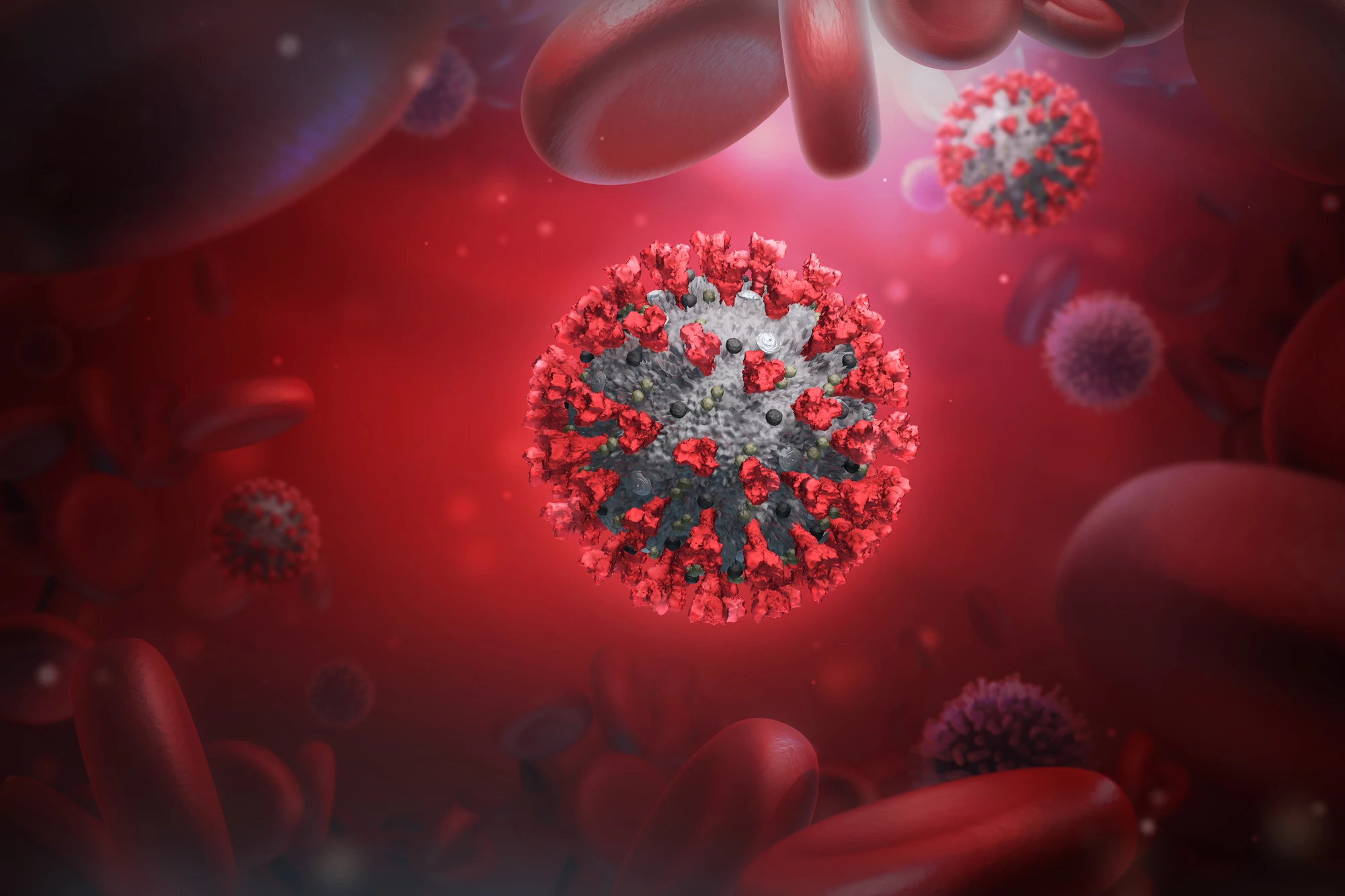Very early in the pandemic doctors began tracking the association between COVID-19 disease severity and a patient’s blood type. Now researchers have validated those early observations, finding several blood proteins are causally linked to an increased risk of hospitalization and death from COVID-19.
Some of the earliest observational studies to come out of Wuhan in 2020 pointed to a correlation between a person’s blood type and their risk of serious illness from a SARS-CoV-2 infection. The general observation was that those with type A blood seemed to be at a much higher risk of hospitalization and death compared to those with type O blood.
A new study published in the journal PLOS Genetics has offered the clearest insight to date into the causal relationship between blood type and COVID-19 severity. The research used an analytical method called Mendelian randomization to assess the relationship between the gene variants that govern levels of blood proteins and COVID-19 disease outcomes.
“Causality between exposure and disease can be established because genetic variants inherited from parent to offspring are randomly assigned at conception similar to how a randomized controlled trial assigns people to groups,” explained co-first author on the new study Vincent Millischer. “In our study the groups are defined by their genetic propensity to different blood protein levels, allowing an assessment of causal direction from high blood protein levels to COVID-19 severity whilst avoiding influence of environmental effects.”
The researchers screened over 3,000 blood proteins, and COVID-19 severity was determined by either hospitalization or death.
One of the key findings was a causal association between COVID-19 severity and an enzyme known as ABO, which determines a person’s blood type.
Christopher Hübel from King’s College London said the new research did not interrogate the relationship between specific blood types and COVID-19 severity. However, he does point out the ABO findings do validate prior observational studies linking type A blood with an increased COVID-19 risk.
“The enzyme helps determine the blood group of an individual and our study has linked it with both risk of hospitalization and the need of respiratory support or death,” said Hübel, co-last author on the study. “Our study does not link precise blood group with risk of severe COVID-19 but since previous research has found that proportion of people who are group A is higher in COVID-19 positive individuals, this suggests that blood group A is more likely candidate for follow-up studies.”
Of course, there are a number of risk factors beyond blood type known to play a role in COVID-19 severity, from age to pre-existing illness. So these findings should not be a cause for concern to those with type A blood.
Instead, as co-last author on the study Gerome Breen explains, these findings help researchers investigate novel therapeutic pathways to help treat COVID-19. For example, several blood proteins were identified in the study as causally linked to a decreased risk of severe disease.
These proteins, known as adhesion molecules, play a role in the interactions between immune cells and blood vessels. The researchers hypothesize these adhesion molecules may be helping moderate the severity of late-stage COVID-19 and it may be possible to turn this discovery into a therapy to prevent sick patients deteriorating in hospital.
“What we have done in our study is provide a shortlist for the next stage of research,” said Breen. “Out of 1,000s of blood proteins we have whittled it down to about 14 that have some form of causal connection to the risk of severe COVID-19 and present a potentially important avenue for further research to better understand the mechanisms behind COVID-19 with an ultimate aim of developing new treatments but potentially also preventative therapies.”
The new study was published in the journal PLOS Genetics.
Source: King’s College London




